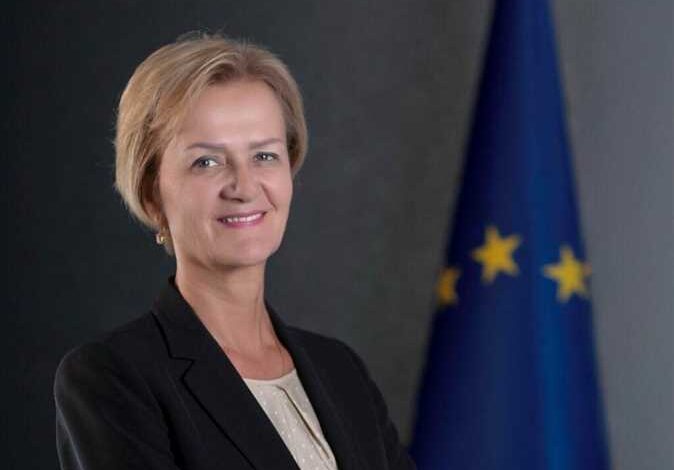
The European Union’s Ambassador to Egypt, Angelina Eichhorst, announced that the second tranche of the European financial package – worth four billion euros as part of the overall financial support package for Egypt – is expected to be disbursed within weeks.
On the sidelines of her current visit to Aswan, Eichhorst explained that the exact date for the disbursement of the second tranche, which was approved by the European Parliament in April, has not yet been determined.
Remarkable progress
She added that during her field visits, she reviewed some projects in Aswan, including “Tahweesha,” “Tamkeen,” and “Dawy,” which are supported by the EU, and said she witnessed remarkable progress – especially since it is not easy for any society to integrate women into projects.
Eichhorst noted that discussions are currently underway with Minister of Planning and International Cooperation Rania al-Mashat regarding the 2026-2028 program and the Egyptian government’s priorities, including building support for girls and women.
Furthermore, the Egyptian Finance Ministry intends to cover the new budget deficit by issuing new domestic debt instruments worth LE 2.2 trillion, with LE 2.2 trillion in treasury bills and LE928.9 billion in treasury bonds, as part of the government’s plan to increase spending on social welfare and bridge the budget deficit.
The ministry also plans to issue international bonds worth no less than four billion US dollars during the next fiscal year, as part of a program to issue international bonds totaling four billion dollars.
The financing gap in the draft budget for the next fiscal year is expected to increase by more than 25 percent to LE 3.6 trillion, and the draft budget has set the exchange rate at LE 50 to the US dollar.
Egypt seeks to reduce financing gap
The Chairman of the Planning and Budget Committee in the House of Representatives Fakhry al-Fekki said that the government seeks to reduce the financing gap by obtaining funding from international financial institutions, including the International Monetary Fund, the World Bank, and the European Union, in addition to issuing international bonds and sukuks.
Fekki estimated the financing gap for the remainder of the current fiscal year 2024/2025 at approximately four billion dollars, which will be financed by issuing international bonds in foreign markets, in addition to obtaining US$1.3 billion in resilience and sustainability financing from the International Monetary Fund to address the effects of climate change.




